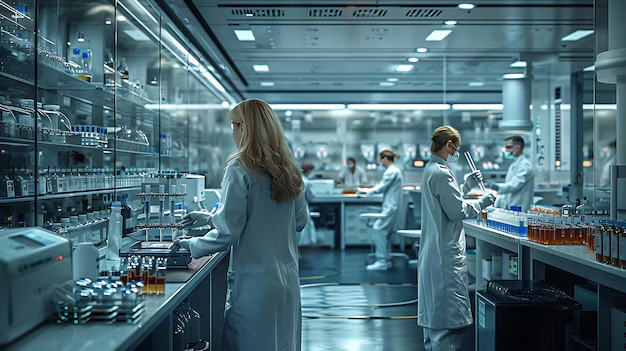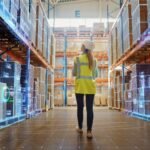Innovative approaches to drug discovery domain are the primary means to overcome traditional barriers in drug discovery domain in which the relentless pursuit of ground-breaking therapies is a top priority. Automation of laboratories has proved to be an innovative power capable of reshaping the strategies of drug development and discovery. This article demonstrates how robotic automation can break through boundaries of drug development, starting with speeding up the testing of potential pharmaceutical agents and paving the way for newer therapeutic options to arise.
Facilitating Reproducible Research Practices
Reproducibility is the foundation of the experimental research; via ensuring the reliability and validity of findings. Automation of laboratory is the influential in ensuring both reproducible research and invention of standardized experimental protocols and to assure minimal variability in experimental conditions. Automation units can precisely adjust parameters of the environment such as temperature, pH and reaction time and reduce the chances of errors and make the experiments reproducible. Automation also makes reporting and tracking of all the experimentation processes possible, therefore, there is transparency and accountability in science research. Through the reproduction of results, lab automation promotes trustworthiness and reliability of research findings and helps console the science community for the further translation of breakthroughs into clinical applications.
Small and Medium-Sized Enterprises (SMEs) should be given power.
Moreover, lab automation intermittent with the academic and institute research facilitates the SMEs to involve in drug discovery and development ventures. Traditionally, the high costs and sophisticated equipment used in the research laboratories coupled with the limited resources has been the main barrier to the growth and development of the small and medium sized companies in the pharmaceutical industry. Nevertheless, the automation technology has, in a sense, allowed the small and medium enterprises to harness the same progressive research tools, so that they can become more competitive through it.
The high specificity of CRISPR-Cas technology and how it has bought change
The new method of targeted and personalized medicine has brought a revolution of drug discovery where the therapy is primarily designed and customized for each individual patient in order to be consistent with their unique genes and characteristics of the particular disease. Technological advancement, in particular lab automation, greatly enhance the journey of the whole process of looking for new and precise molecular targets, as well as biomarkers. Using automated systems with patient-derived cell or tissue samples, researchers can measure the expressions of particular drugs against a library of candidates, and so evaluating the individual responders apart from the non-responders much more accurately. Besides this, automation provides a tool for this: (1) the process of synthesis and working out targeted medicines and (2) it accelerates the process of developing precision medicine that can cure a large number of complex diseases like cancer, and rare genetic disorders, and autoimmune conditions. Through the removal of these roadblocks, automation serves as the comprehensive response to the heterogeneity of diseases and the transition towards more precise and personalized treatments.
The Wisdom of Harnessed technology of Artificial Intelligence
AI has today become an indispensable weapon for drug discovery, introducing data-driven and high-throughput screening technology that scrutinizes even the most complex molecular networks for more effective drug candidates. The combination of AI algorithms with experimental processes in automation facilitates the use of large datasets in sample testing that lead to customization of experiments as well as knowing future outcomes. AI-driven platforms may be function as systematic and intelligent processing scientists to analyse huge quantities of this data, discover the patterns and correlations, and forecast outcome and safety of potential drug compounds with just fine results. Besides, engineering of machine learning algorithms can refine experimental design and selection criteria in an incremental way leading to the improvement of success rates of the drug discovery programs. AI is now the fuel that is allowing the lab automation machine to negotiate its way over predictive modelling, to de-risk drug development, and the wave of discovery in therapeutic research.
Conclusion: Entering a New Era of Discovery
For the summary part, lab automation is a new trend in development of drugs, which disrupts the current situation and allows to explore the new ways in cooperating with others and find the better solutions. Advanced automation technologies enable high speed screening, precision personalized medicine, artificial intelligence application, and the improvement of collaboration and knowledge sharing. Thereby, it is changing the drug research landscape in the aforementioned way. There is no doubt that technology is changing at a breakneck speed and interdisciplinary cooperation is one of the important catalysts of this process. And this suggests the future of drug discovery is extremely promising—with the help of lab automation, which brings about one of the transformational effects in this field.



